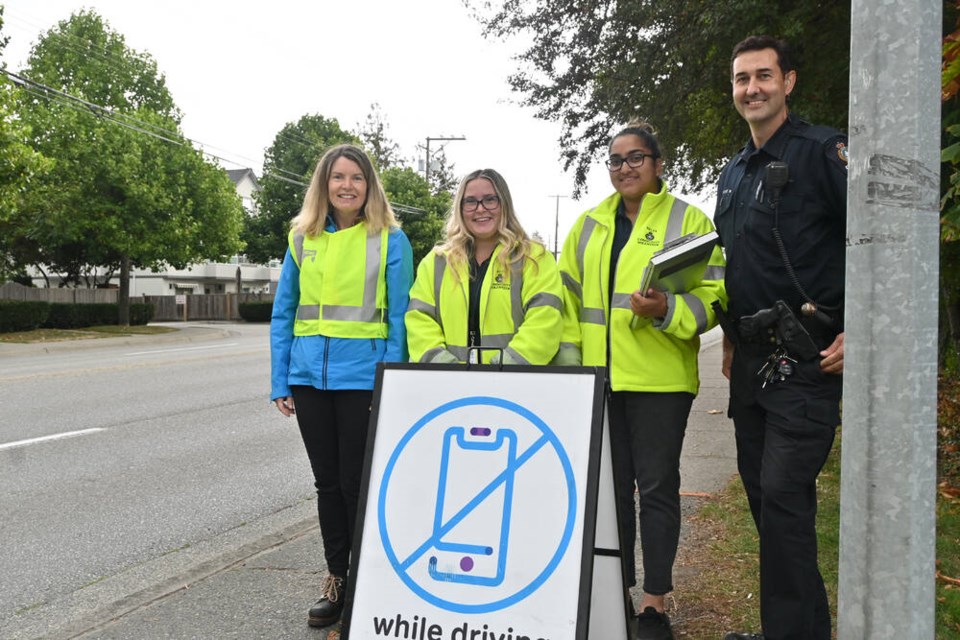A collaborative effort between Delta Police, Surrey RCMP, Langley RCMP, and ICBC saw officers and community policing volunteers conduct a distracted driving enforcement campaign on Tuesday morning.
Community volunteers set up warning signs about distracted driving as officers set up checkpoints at critical intersections.
The Optimist visited one of those critical intersections along Ladner Truck Road.
DPD Sgt. Harvey Sidhu said one in four collisions involves distracted driving, and using electronic devices such as smartphones is one of the most common and riskiest forms of distracted driving.
With the rainy season approaching, drivers must be even more vigilant on the road, he said.
“One of the more common issues that we see is drivers holding their phones in their hands, even when it’s on speaker phone, thinking that it acts as a hands-free device,” Sidhu said.
Sidhu warned that drivers need to be aware that the rule of having a “one-touch” device on a hard mount means the phone has to be correctly secured into a mount on the dashboard, and drivers are allowed one touch to answer and one touch to end calls.
“The goal is to avoid taking your attention off the road, even for a split second,” Sidhu said. “As we know, all it takes is a split second for a pedestrian or an animal to walk out onto the roadway, and you may not see them because you are turning your phone on and off.”
Acting Insp. James Sandberg, public affairs manager at DPD, added that plainclothes spotters would observe drivers’ actions and then radio the officers ahead to penalize any offenders.
“It is still a chronic problem. People do not necessarily respect the rules,” Sandberg said. “There have been instances where drivers put the phone down and look up. The light is still red, but they just drive through it. They haven’t been paying attention.”
ICBC Road Safety and Community Coordinator Karon Trenaman said the collaboration isn’t just about enforcement, but also about educating and fostering a responsible driving culture.
Trenaman encouraged drivers to put their electronic devices in the glove box, use maps to better understand their destination before leaving, and plan with a little extra time.
“It’s a good idea to leave an extra 20 minutes so that you are not running late,” she said. “Then you won’t feel that urgency about needing to let someone know you are late.”



